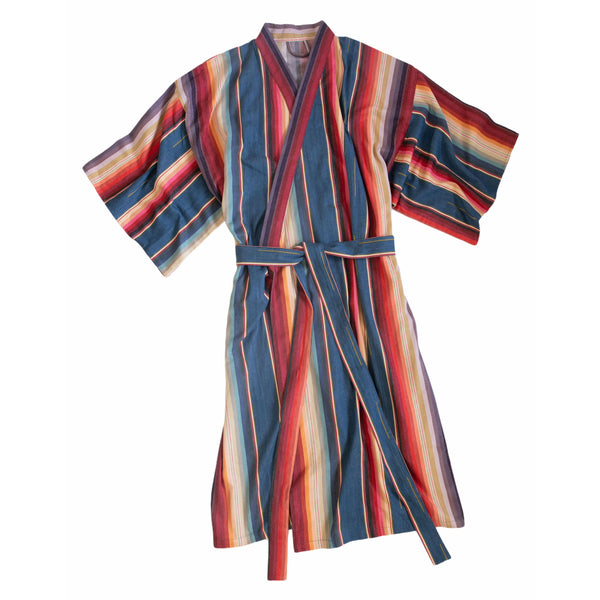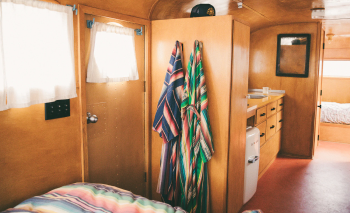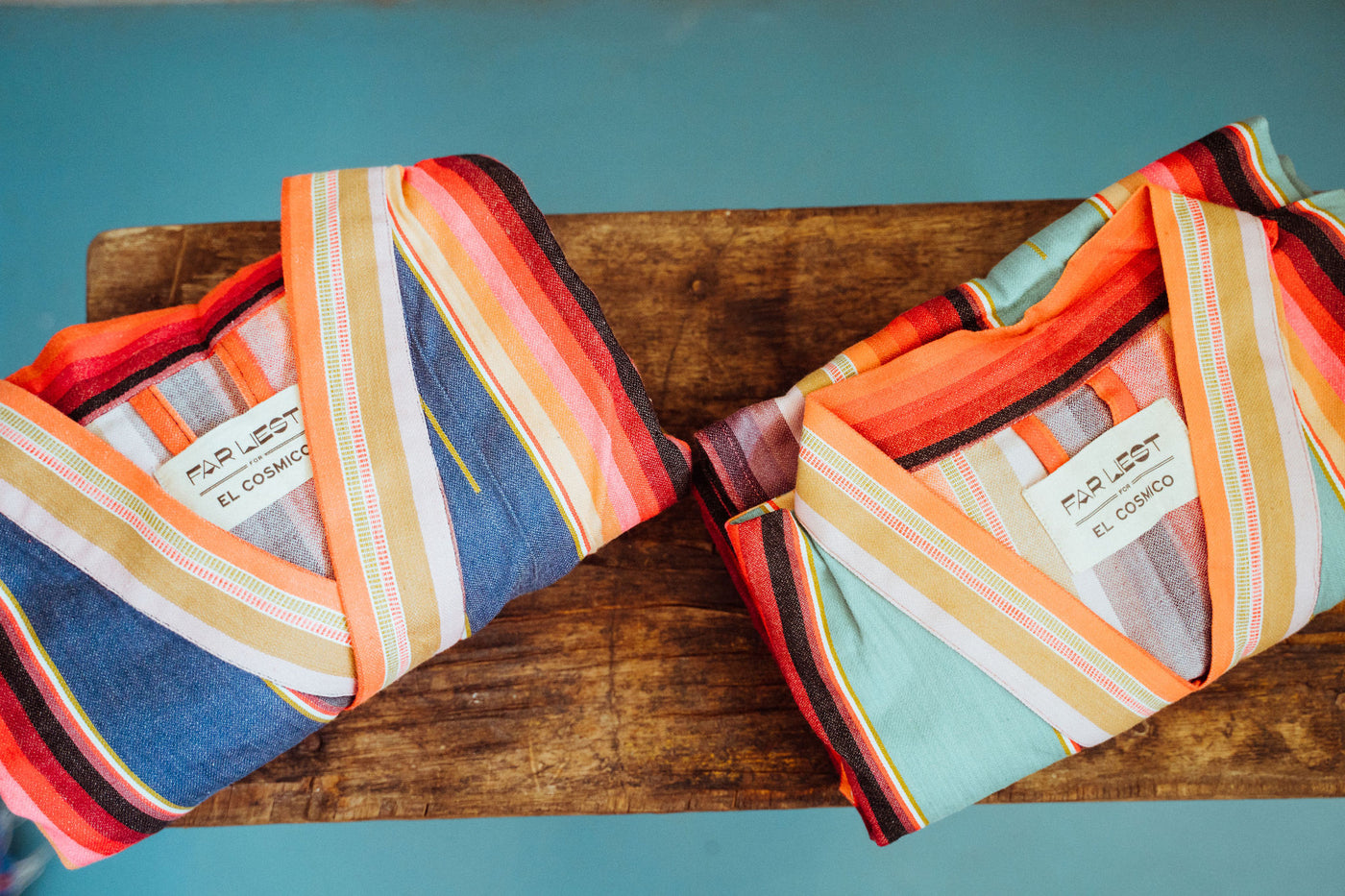We’ve had the great privilege of working with John Dalal and Aaron Sauberan of Maharaja Me for many years on textile design and development of our custom bedding and robes. John began his career in textiles working for his father, who was an importer of fabrics from his native home in India. As John’s knowledge of the industry and relationships with suppliers deepened, he carried on his family legacy through Maharaja Me. When John met Aaron in 1994, their shared passion for textiles – John’s from the development side and Aaron’s from his love of sewing and fashion design – played a big role in their relationship and the two were married in 2008. When John passed away suddenly in 2019, Aaron realized that the world of textiles was central to his connection with John and the shared life experiences of their family and friends, and he decided to carry on the legacy of their work by running the business while continuing his work in special education.
We sat down with Aaron to chat about his experiences and the nature of the products we develop together.
FW: We’ve worked with you on a variety of types of fabrics to create our robes – some that are woven specially for us, to some that are block printed and Batik dyed. Can you tell us a bit about these techniques?
AS: The striped robes are made using a satin weave which means the yarns (warp or weft) spend more time on the face side of the fabric and this creates saturated color, and a soft- drapey feel.
The Paisley Robe fabric is a block print using natural dyes on non-certified organic cotton. The Batik robe fabric is made in Jaipur and is first batik printed using a clay resist and natural indigo dye and then block printed with ‘pigment ink’- which are standard inks…man-made.
We source fabrics in a range of natural fibers: cotton, wool, silk and linen. Standard, organic, certified organic, and heirloom varieties of cotton are all available; the heirloom varieties tend to be used for hand-spun/hand-woven textiles. We work with individual craftspeople running their own cottage industries as well as larger cooperatives and organizations with industrial-scale operations.

FW: Speaking of your suppliers and the various types of materials used, we often get asked about fair-trade certification. We know there's never a short answer for this, but tell us about the suppliers we work with.
AS: The supply chain from start to finish for a garment like the ones we make is quite decentralized; we rely on various coordinators who have long-held relationships across all of India to get the specific job done from yarn sourcing to dying, weaving, printing, cutting, and sewing. These are reasons why an over-all ‘fair trade’ certification is not an appropriate way to qualitatively describe what we do. Many of these producers along the supply chain are small family-run businesses, for whom some form of fair-trade certification would be cost-prohibitive. That doesn’t mean they don’t work in sustainable and equitable ways, it simply means that they don’t have the infrastructure to acquire certification. I think 'fair trade', 'sustainable' and 'ethically sourced' are mostly retail-level buzz words that benefit the top-rung retailer who can market their products at a premium, rather than to the benefit of the individual producers.
One over-arching thing I’ve learned and continue to remind myself to do is to be as open-minded and objective as possible when leaning into another country and culture and to develop an expansive working understanding of the segment/s of India that I get to know. My approach is to work with people who have an interest in textiles and from there develop relationships, ask questions, meet and observe facilities. My goal is to keep learning about the processes so that I can work with facilities that are well-run, as well as meet customers’ specific goals such as ‘I want to reduce plastic’, ‘I want to import hand-loomed textiles’, ‘I want to import textiles woven by women.'
For example, one of our network of suppliers is a non-profit cooperative that exists to support its member tradespeople. In this cooperative the members democratically vote for local representation across India’s regions and members from the local body ultimately form a country-wide governing board that directs the organization, the hiring of the staff, negotiating costs, and profit-sharing.
On a trip to India last year, I learned that one of the cutting and sewing centers that makes about half of Far West’s goods is run by a father of a young man with autism and intellectual disabilities who decided to employ a class mate of his son’s to work in the sewing center. When I was visiting, our mutual experience with special education surfaced and we became instant fans of each other and he invited his wife (also a special educator) and his son to come meet me. This exchange was a very touching exemplification of the ’namaste’ philosophy of seeing the divine-ness in each other. The young man and others in his vocational program use scraps from Maharaja Me projects to weave floor mats that are customarily placed outside doorways and through this a new venture to support this vocational program is being formed. I’m proud that Maharaja Me is represented in this way.
FW: Tell us what you love most about your work. What’s your favorite textile we’ve created together?
AS: It’s an honor, and often quite emotional, to continue the Dalal family work and to embrace John’s presence each day.
My favorite fabric that I’ve done for Far West is perhaps the ‘Big’ collection. It’s proven to be very versatile in terms of age, gender expression, and end-use. The green El Cosmico stripe is also a favorite since it’s like a long-known familiar friend.


